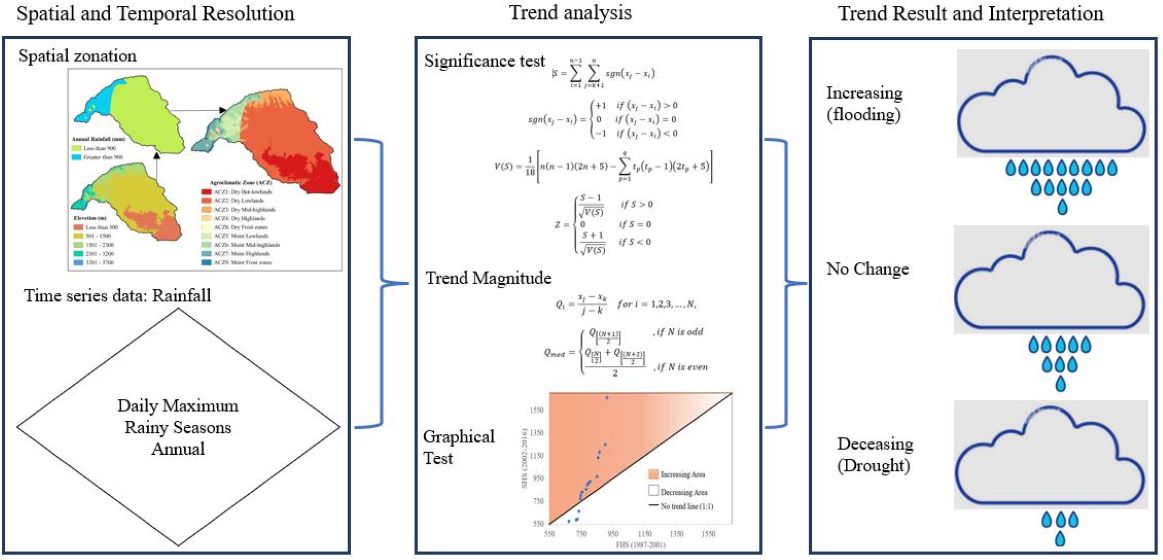Any change in the amount and annual distribution of rainfall causes a major socioeconomic and environmental problem where rainfed agriculture is predominant. For that reason, the objective of this study was to determine the long-term variability and trends of precipitation in the Wabi Shebele River Basin (WSRB), Ethiopia. The basin was discretized into 7 local agroclimatic zones (ACZ) based on annual rainfall and elevation. In this study, the coefficient of variation (CV) was used to check the variability of rainfall and modified Mann-Kendall (MK) and Innovative Trend Analysis (ITA) methods were used to detect rainfall trends. For each ACZ, stations with long-term records and less than 10 % missing data were selected for further analysis. The mean annual rainfall in the basin ranges from 227.2 mm to 1047.4 mm. The study revealed most of the ACZs showed a very high variation in Belg/Spring season rainfall (CV % > 30) than Kiremt/Summer and annual rainfall. Trend analysis revealed that no uniform trend was detected among ACZs at each temporal scale. But, most ACZ in the arid and semi-arid areas showed a non-significant decreasing trend. In comparison, a similar result was observed using MK and ITA methods.

